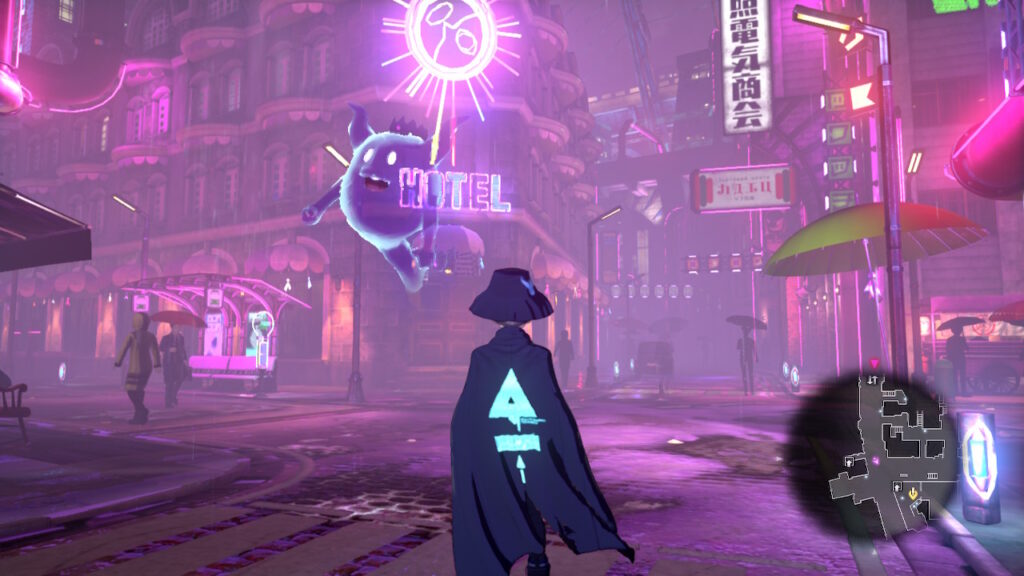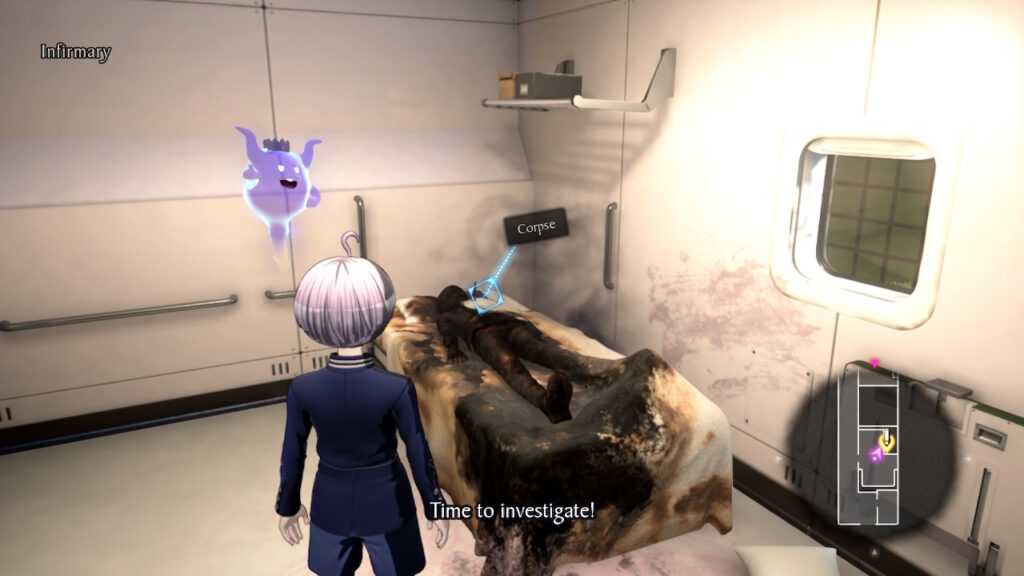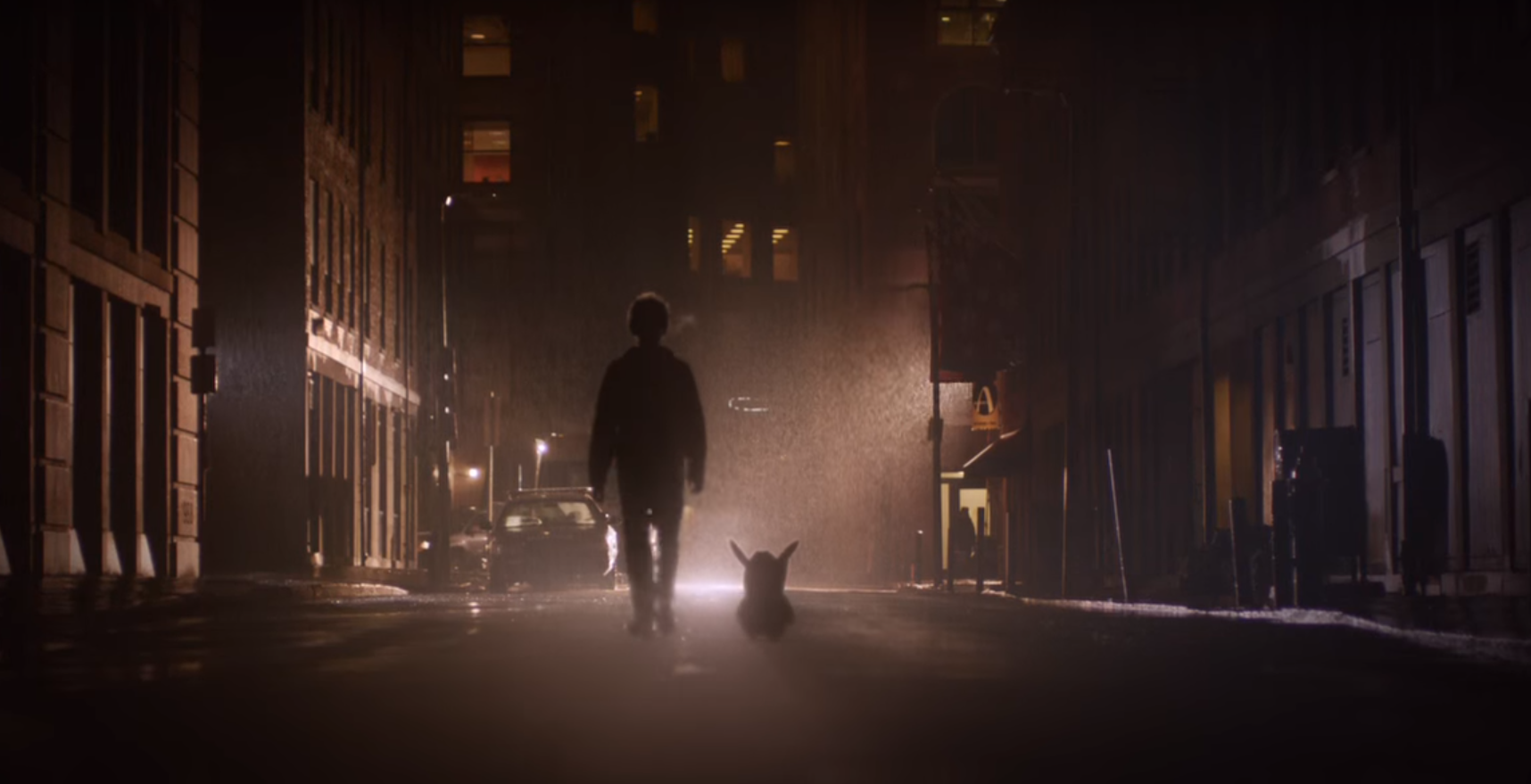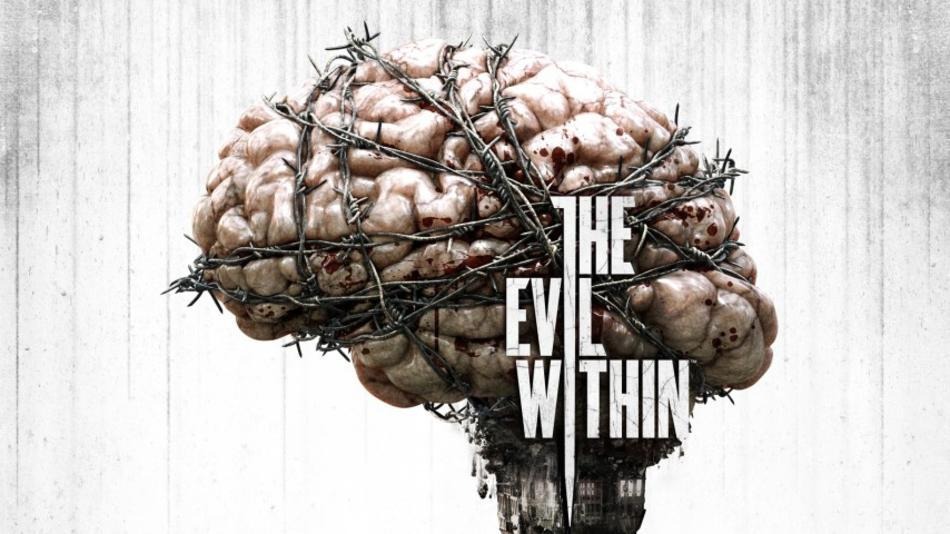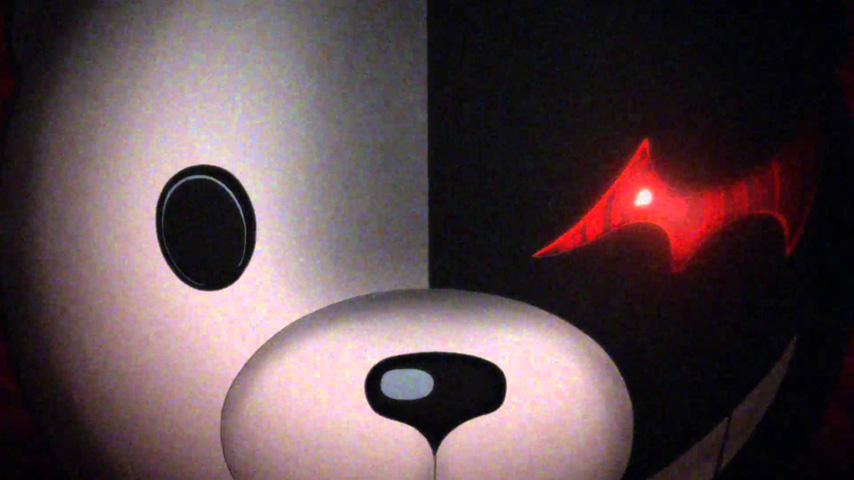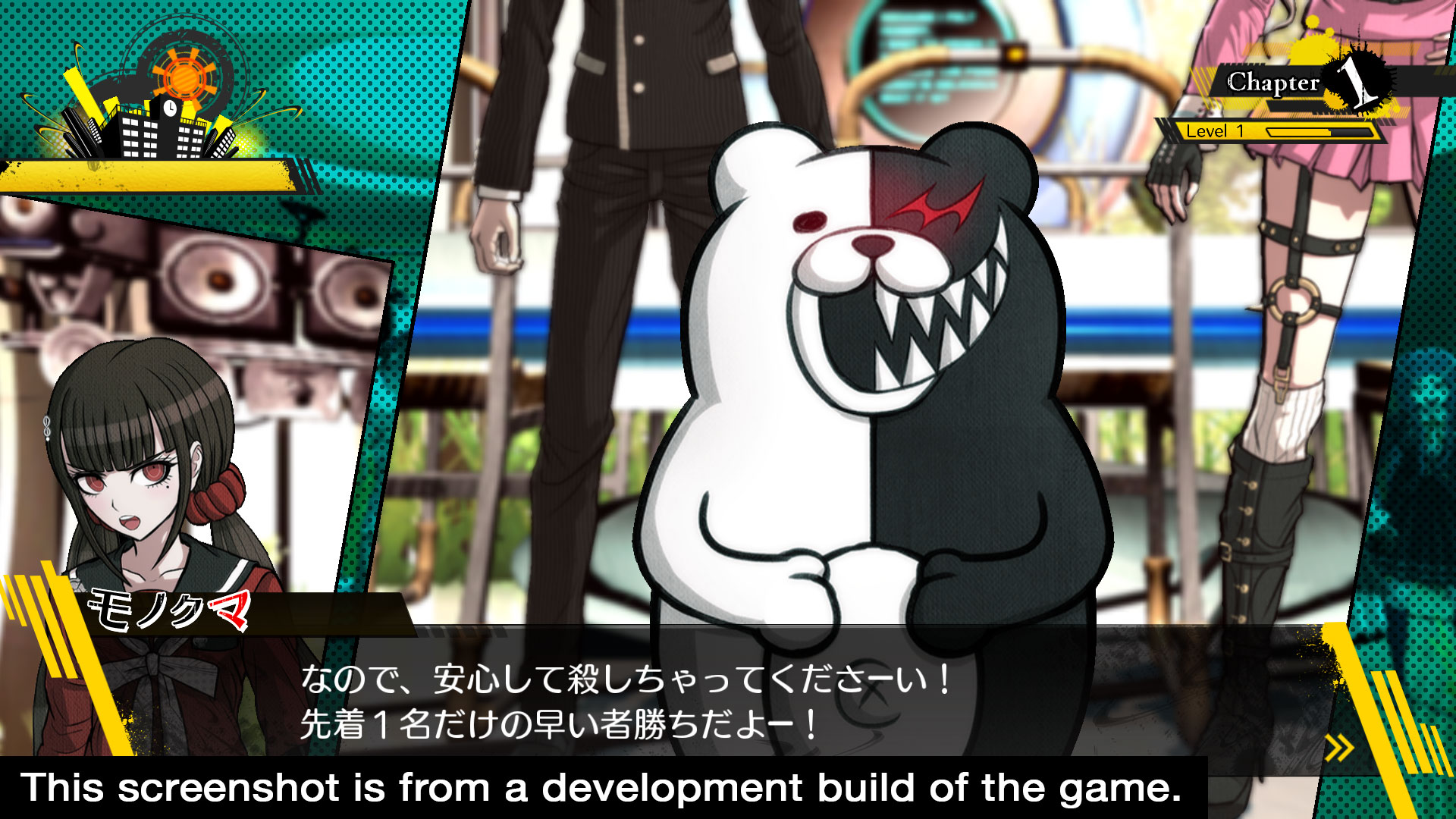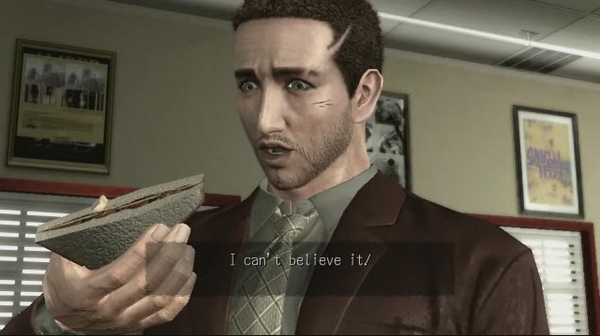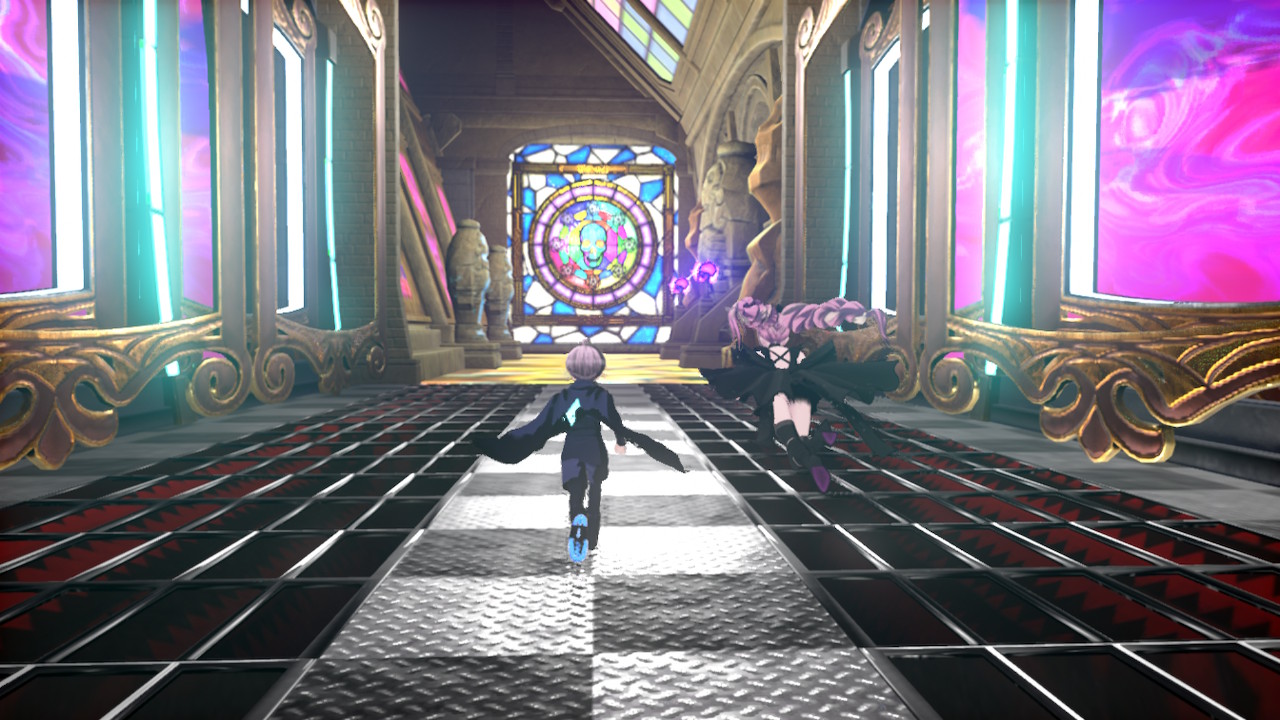
Master Detective Archives: Rain Code is the latest game from Too Kyo Games, formed from ex-employees of Spike Chunsoft who worked on the Danganronpa series, whose DNA can be strongly felt throughout this release. Rain Code is a visual novel detective game, with some light RPG elements and the veneer of an open world splashed on top, but really it’s about throwing strange murder mysteries at you, presented in highly original, if not always succesful, ways.
Making a pure detective-focused game is a no-brainer, as Danganronpa was at its core all about the work of a detective mashed with a lawyer, as players gathered evidence from bizarre crime scenes, talked to strange characters with unusual abilities, and then determined the culprit through arguments at a simulated court trial. Rain Code follows this pattern to a tee, although it substitutes its own spin on many of the familiar Danganronpa elements. In Danganronpa, players shouted down arguments by literally firing words like bullets at contradictory statements. In Rain Code, you cut through statements with a sword. That feeling of same-same-but-different permeates throughout a lot of Rain Code, which retains the same art and music style as Danganronpa as well.
Rain Code introduces us to the ridiculously named Yuma Kokohead, a young man suffering from amnesia who’s apparently a trainee Master Detective. The loss of his memory seems to have been made as part of a trade with the cute spectre following him around, Shinigami. In exchange for his memory, he’s permanently tethered to a god of death, who’s also able to transport Yuma to ‘Mystery Labyrinths’. This ability comes in handy frequently, as Yuma is sent to Kanai Ward, a special district under the complete jurisdiction of Amaterasu Corp where virtually no detectives operate, but there are plenty of mysteries and unsolved cases. As Yuma learns more about Kanai Ward and its ultimate secrets, he also develops bonds with other Master Detectives sent with him to Kanai Ward, each with their own ‘forte’ that verge on the supernatural, from mastery of disguise and astral projection, to turning back time a few seconds.
The setup works fine for a series of six cases which Yuma tackles throughout the course of the game, and the writers delight in throwing you into several traditional mystery tropes. For instance, one case not only throws one locked room mystery at you, it has three, while others offer scenarios with no possible escape route for the culprit. There’s a train of logic you’re required to follow to solve these mysteries, and it’s not always clear where the writers are going, especially since some of the manoeuvres by the culprits would need insane skill and planning, with or without any heightened abilities they may already possess. Some of these mysteries are easier to solve than others, particularly when someone catches your suspicion early on, and it’s not always a case of the later mysteries being more difficult than the earlier ones.
The way you actually go about solving these mysteries is always through the Mystery Labyrinths. These are physical representations of mysteries, existing in another dimension, which warp and shape themselves to whatever the scenario is. In practice, this involves a lot of linearly running in one direction as Yuma and Shinigami, along with any friends they bring along, ponder over the mysteries’ central questions, as you occasionally have to make decisions over which path to take based on these. For instance, ‘Was the murder a homicide or suicide?’ could lead you down one of two different paths. Occasionally you’ll be attacked by a warped S&M version of one of the central antagonistic figures in the case, where you’ll need to defend yourself in ‘Reasoning Death Matches’. At other times, you have to throw daggers at a barrel covering Shinigami’s attractive alternate-dimension counterpart to spell a needed word. At the end of a case, you’ll pilot Shinigami like a kaiju to destroy a castle’s defences.
Rain Code throws a lot at you, especially in the Mystery Labyrinth sections and it often feels like it’s trying to be quirky for the sake of being quirky. The various traps and bizarre configurations of the Mystery Labyrinth are fairly surface level, but the mini-games you engage in don’t always connect with the mystery they’re meant to be portraying, making you wonder if the game could just be a bit more straightforward in its deductioning, but then I suppose that would defeat the whole purpose. It’s not as memorably wacky as Danganronpa was, feeling a little more desperate to find some unique way to spin these mysteries.
Outside of these main cases there are other activities Yuma can engage in, as Kanai Ward develops into a small but detailed open world which you can explore. While the Switch struggles with resolution and frame rate in these open sections, the side missions you can engage with are few and far between. There’ll be a handful which present themselves between missions which you can take on to gain skill points (used to unlock abilities to make Mystery Labyrinths easier), but they’re fairly thinly plotted, dealing with minor goings-on in the town or follow-ups to characters from previous cases. There aren’t enough of them to really get your teeth stuck into either. Outside of these, you can also go hunting for collectibles which unlock small scenes between Yuma and his detective friends, but again these are fairly basic rewards.
Master Detective Archives: Rain Code very much feels like a variation on a theme, that theme being the visual novel style established in Danganronpa. It throws a lot of creative and weird ideas at the player in its Mystery Labryrinths, but these are essentially changes to the window dressing on what is fundamentally a familiar formula. As a series of mysteries it’s a fine follow-up to the earlier series, with plenty of memorably cute characters and fun dialogue, and even if the mysteries themselves don’t always satisfy, Rain Code has plenty of wild and wacky twists and set-ups to satisfy fans of visual novels.
-Carries over the style and dark humour of the Danganronpa series into a creative new setting -Some out-of-the-box mysteries to puzzle over -Cute characters and situations
-Very little of actual interest to do outside of the main, linear story -Often feels overly quirky for the sake of being quirky, rather than servicing the story, especially in the opening half -The train of logic you're required to follow is sometimes too easy, or too specific, and not necessarily increasing in difficulty as the game goes on -Exclamations seem to have been programmed to be much louder than other dialogue

